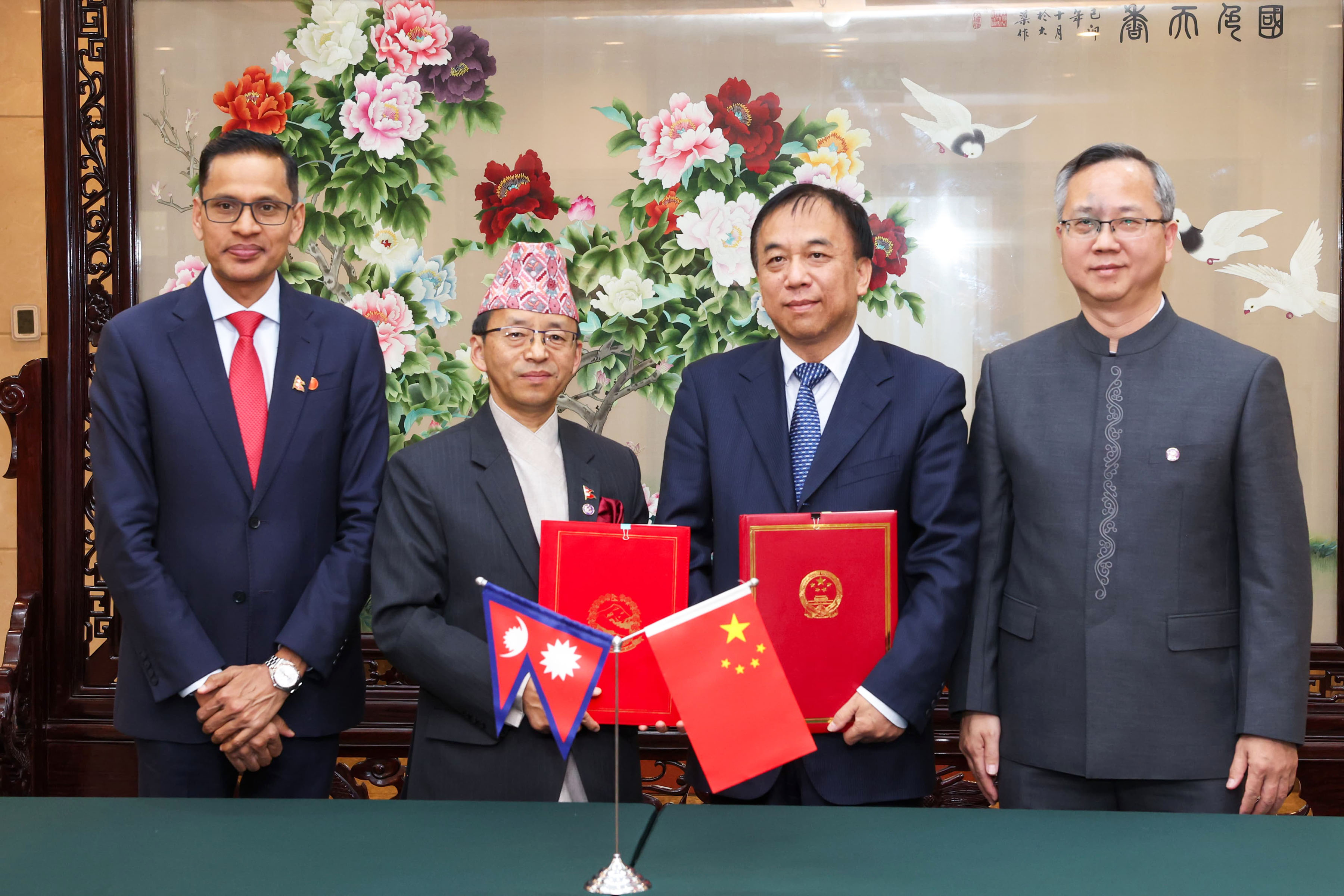
The last minute deal-making on the BRI Framework Agreement is an example of how not to conduct bilateral negotiations.
Shristi Karki - - -
Prime Minister K P Oli’s visit to China this week was proof that Nepal suffers self-inflicted geopolitical harm. Let’s call it the ‘China syndrome’.
Weeks before the visit, opposition politicians, coalition partners, op-ed influencers all started ringing alarm bells about backlash from India about Oli not going to Delhi first. Maoist leader Pushpa Kamal Dahal even internationalised a domestic issue by telling an Indian newspaper what it wanted to hear about Oli using ‘the China card’.
The acronym BRI was in every page 1 headline for a month before the visit. It was almost like this was payback time for how the American MCC deal was nearly cancelled two years ago. The governing UML’s main coalition partner maintained that Nepal should accept only grants, and no more loans from China.

Photos: RSS
In the end, after much last-minute backroom haggling in Beijing, a compromise formula was found for Nepal to finally sign the BRI on Wednesday. The trick was in semantics: calling the BRI a ‘Belt and Road Initiative Framework Cooperation Agreement’. Not that this was going to make much of a difference.
The grant vs loan dispute was also tidily bypassed by using the oxymoronic term ‘aid-assistance’. This should make way for both grants and soft loans from China to fund infrastructure and development projects under the BRI, which was what it was going to be anyway. And that was enough to prove that Oli’s visit to China was not just a junket.
Ten out of the 12 projects proposed by Nepal were ‘accepted’ by the Chinese side as part of the BRI deal: the Hilsa-Simikot Road, Kimathanka-Khandbari Road and Kimathanka Bridge, the Tokha-Chhahare tunnel, the trans-border Kerung-Kathmandu railway and a 220kV Kerung-Rasuwagadi transmission line among them.

But given how past bilateral agreement since President Xi Jinping’s visit to Kathmandu in 2019 have languished, there is likely to be the usual inertia on the Nepal side. Tellingly, there was no agreement on Nepal’s wish for the cancellation of the $220 million loan from China’s Exim Bank for Pokhara airport. The most tangible outcome seemed to be water buffalo meat export, China sending Mandarin teachers to Nepal, a future ‘friendship park’ in Oli’s home constituency of Jhapa and a city hall in Sher Bahadur Deuba’s constituency of Dadeldhura.
Nepal signed the framework agreement of the Belt and Road Initiative (BRI) with China in 2017, initially proposing 35 development projects which came down to nine. In 2020, China sent Nepal a BRI implementation plan, but progress was mired in politicisation and red tape. This time, a joint task force involving members of the UML and NC drafted the BRI Framework agreement prior to PM Oli’s visit to China.
“Although some of the funding is in the form of grants, the BRI’s financial modality is usually commercial and concessional loans anyway,” says Mahesh Maskey, Nepal’s former ambassador to China. “While commercial loans are expensive, BRI concessional loan interest rates have been as low as 0.3%. If we only seek grants, we could have chosen to do that through normal bilateral agreements like we do at present. Why choose to pursue grants under the BRI?”

China-watchers in Kathmandu say Beijing has stopped taking Kathmandu seriously because Nepali leaders never do what they say, are tangled up in power struggles and do not implement agreements. Instead of begging China to forgive the Pokhara airport loan, they say Nepal has not done anything to promote it as an alternative tourism gateway. Not even Nepal’s own carriers like Nepal Airlines and Himalaya Airlines fly there from Chinese cities.
In fact, the last minute deal-making on the BRI Framework Agreement is a classic example of how not to conduct bilateral negotiations. It did provide Oli with a fig leaf, but a lot now will depend on how Nepal’s leaders stop being distracted by external geopolitics, and pay urgent attention to internal delivery.
Shristi Karki
writer
Shristi Karki is a correspondent with Nepali Times. She joined Nepali Times as an intern in 2020, becoming a part of the newsroom full-time after graduating from Kathmandu University School of Arts. Karki has reported on politics, current affairs, art and culture.
with NepaliTimes


